BIRD OF THE YEAR FOR 2012
African Fish-Eagle
This year celebrates the most familiar and best-loved bird of prey in Africa, the African FishEagle Haliaeetus vocifer. The scientific name is derived from the ancient Greek words halieos and aetos meaning ‘fisherman’ and ‘eagle’. Vocifer refers to its loud, vociferous call, considered by many to be the sound of Africa. It is one of Africa’s most widespread eagles, being found almost everywhere south of the Sahara, except in waterless areas.
DESCRIPTION
The African Fish-Eagle is one of the more brightly coloured raptors. The pure white head, neck, upper belly, mantle and tail contrast sharply with the rich chestnut flanks, lower belly, thighs and under-wing coverts, and with the black back, upper tail coverts and flight feathers. The lower legs are dull yellow and bare – an obvious advantage when dipping them into water when hunting. In flight, the conspicuous white head, short white tail and broad wings with dark flight feathers of the adult are unmistakable. However this description applies only to the adult. Much less striking is the almost scruffy appearance of the juvenile African Fish-Eagle, with its mottled dark-brown and white plumage. Young birds may easily be confused with other large raptors, especially the Palmnut Vulture and Osprey, both of which are associated with water, and also have pale bare legs. At two years the immature has a pure white underside. Subsequently the plumage begins to resemble that of the adult; the chestnut belly develops in patches, and at 4-5 years and after several moults full adult plumage is attained. There is a considerable size difference between the sexes; males average 2.2 kg, females 3.4 kg. This difference might not be obvious in the field, females having a bulkier build rather than a much greater wing-span.
STATUS
It is resident and locally common throughout the range. In principle African Fish-Eagles hold permanent territories, which under ideal conditions may be as smallas 2 sq km. However, as with all aquatic species, local conditions influence events. Territories on seasonal flood plains must be vacated when the water disappears, and at the same time displaced pairs become gregarious around drying water-holes where there is a temporary glut of food.
HABITAT
The African Fish-Eagle is usually associated with large bodies of fresh water, but also uses brackish waters including coastal lagoons, estuaries and even rock pools on the seashore. Man-made impoundments are increasingly being used, especially in upland areas where there are no alternatives. A large tree, not necessarily at the water’s edge, is vital for roosting and nesting. Immatures sometimes wander far from water and could be found anywhere except closed forest.
HABITS
African Fish-Eagles are usually seen perched in a tall tree, often in pairs, with a view of open water. Alternatively they will be soaring over water, usually for display. However, both stations are used to watch for the usual prey – fish swimming just below the surface. Fish are caught by a short swift swoop from low above the water surface, with feet outstretched forwards. Fishing is a very profitable business; hunting occupies only about two hours per day, with most activity in the morning. African Fish-Eagles have a piratical nature, and readily steal from other fish-eaters such as the Osprey, herons, storks, kingfishers and pelicans.
FOOD
About 90% of the diet is fish, of many species, mostly caught within 15 cm of the water surface. The preferred size range is 200-500 g, and a single catch is enough food for the day. Bigger fish are sometimes caught; anything up to 1.5 kg can be carried away, but bigger fish – up to 3 kg – are “planed” over the water surface to shore and eaten there. On average about eight strikes are needed for one capture, so the African Fish-Eagle has a pretty leisurely life. Dead fish are scavenged if there is no alternative. The rest of the diet is made up of water-birds, usually youngsters, but adults as big as cormorants and flamingos are sometimes taken, together with the occasional young crocodile or monitor lizard. Immature African Fish-Eagles that lack territories frequently feed on large carrion, often far from water.
BREEDING
Winter is the breeding season in southern Africa. Always vocal, African Fish-Eagles step up their performance in early winter. The famous call is uttered with head thrown back, whether from a perch or in flight. Display flights consist of ascents in ever-decreasing circles, with frequent duets; the male’s call is higher-pitched than the female’s. The spectacular whirling cartwheel, with talons linked, sometimes seen during a descent, was once thought to be part of the display, but is now known to be an attack on an intruder. A breeding pair mates almost daily. The nest is a platform of sticks with a shallow central cavity built by both partners in a high fork of a tall tree. A new nest may take three months to build. The sparse lining consists of grass, leaves or old weaver nests. The same nest may be used for many years, with frequent repairs, eventually forming a mass two metres wide and almost as deep. Sometimes the same pair will have a second, or even a third nest in their territory, which may have been used in the past, and may yet be repaired for use in the future. The clutch size is 1-3, exceptionally 4, usually 2. Eggs are white. They are laid at intervals of 2-3 days, with incubation, by both parents in turn, beginning as soon as the first is laid. This means, as with raptors generally, that hatching is asynchronous, and the chicks differ greatly in size. There is no brotherly love so the biggest chick(s) grab(s) all food until sated, and the smaller chick(s) may starve. However the automatic Cain-and-Abel killer instinct of chicks of larger eagles is absent, and it is not exceptional for two chicks to be raised in the same brood. The chicks are fully feathered at 50 days, but cannot fly confidently until 70 days. The life expectancy of adults is about 20 years. Hard data from a large sample is lacking, but this figure can be deduced from the subadult-adult ratio in the wild.
THREATS
Water pollution, especially with organochlorines is a potential threat. Eggshell thinning is a known consequence for birds, and has been detected in African FishEagles, but does not appear to have affected breeding success. Wetland degradation could become a factor, but the extent of open waters available, and theeagle’s flexibility in its use of different waters, should minimise this effect. Over-fishing of inland waters by rural people has been shown to affect African Fish-Eagles, but only on a very local scale. Nevertheless, because of the African Fish-Eagle’s complete dependence upon water it could become adversely affected at any future time. Continued monitoring should detect this, and at the same time African FishEagle numbers will act as a check on water quality.
CONSERVATION
The African Fish-Eagle is at present secure, with a total African population in excess of 200,000. Of these at least 3000 occur in southern Africa, with more than 1000 in South Africa itself. It occurs widely within proclaimed nature reserves and Important Bird Areas, and is generally respected on private land, even in areas where it exploits commercial fishing interests.
Its IUCN listing – which refers to global status – is “Least Concern”. In Namibia it has been declared “Vulnerable” on the basis of its small population there. No new conservation measures are considered necessary.
Source: BirdLife South Africa
African Fish Eagle
Re: African Fish-Eagle - Bird of the Year 2012
http://prwinnan.wix.com/prwinnan-photography
Re: African Fish-Eagle - Bird of the Year 2012
Excellent pics PRWIN. 
I'm getting three of mine in before the Fish Eagle maestro (Leachy) turns up.
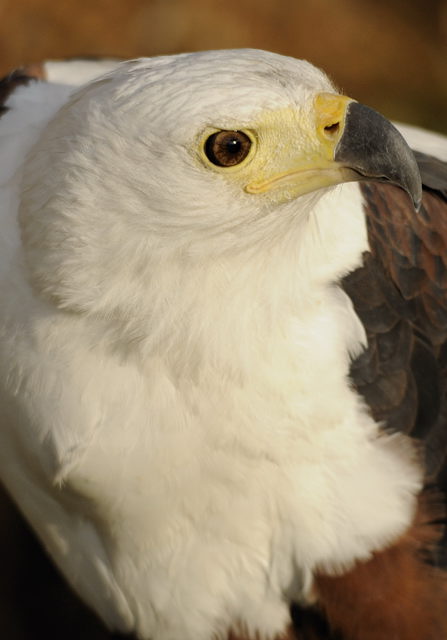
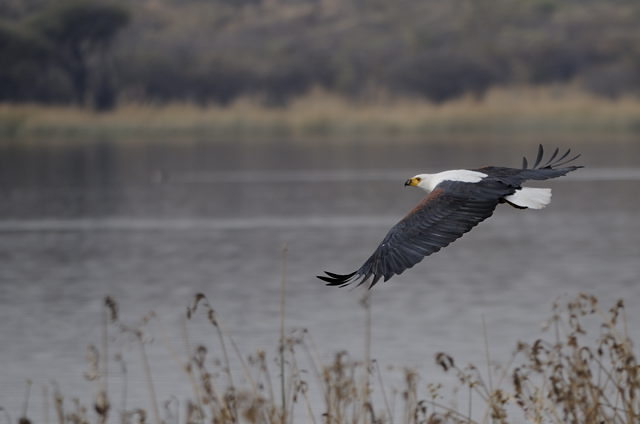
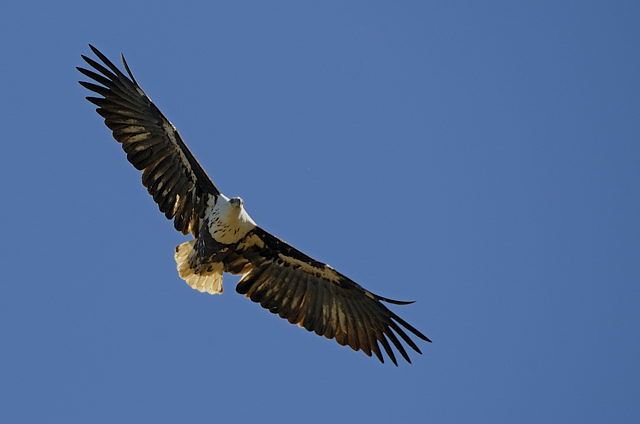
I'm getting three of mine in before the Fish Eagle maestro (Leachy) turns up.



Dewi
What is the good of having a nice house without a decent planet to put it on? (H D Thoreau)
What is the good of having a nice house without a decent planet to put it on? (H D Thoreau)
- Sprocky
- Posts: 7110
- Joined: Sat May 19, 2012 12:29 pm
- Country: South Africa
- Location: Grietjie Private Reserve
- Contact:
Re: African Fish-Eagle - Bird of the Year 2012
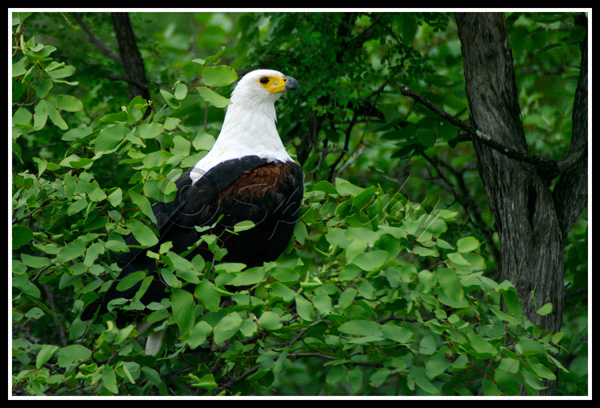
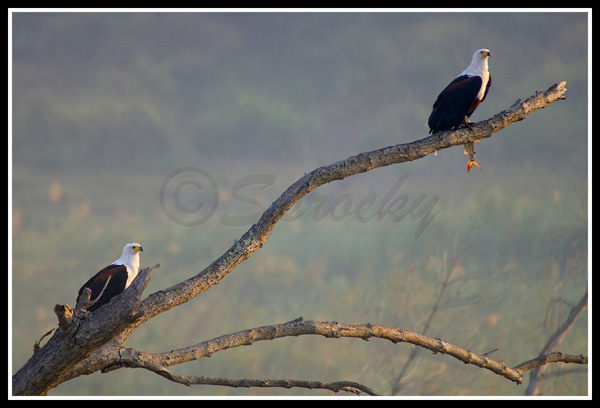
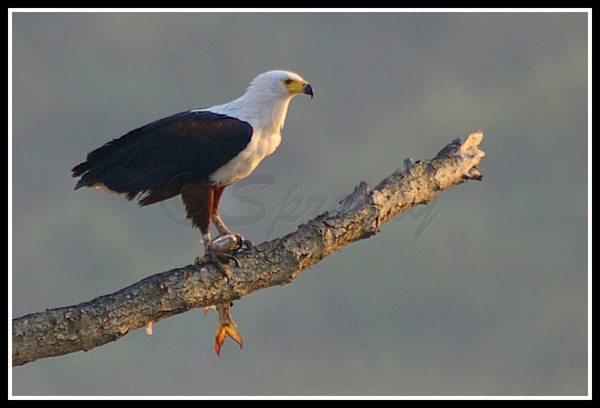
Sometimes it’s not until you don’t see what you want to see, that you truly open your eyes.
- Lisbeth
- Site Admin
- Posts: 65876
- Joined: Sat May 19, 2012 12:31 pm
- Country: Switzerland
- Location: Lugano
- Contact:
Re: African Fish-Eagle - Bird of the Year 2012
No comments please!!  I just wanted to show that I have seen one
I just wanted to show that I have seen one 

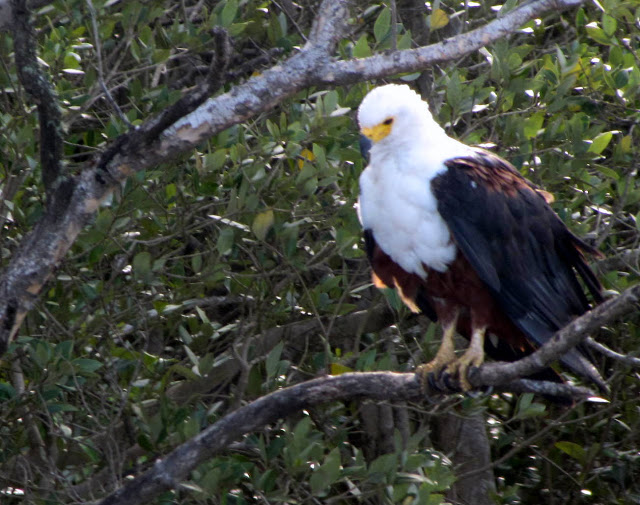

"Education is the most powerful weapon which you can use to change the world." Nelson Mandela
The desire for equality must never exceed the demands of knowledge
The desire for equality must never exceed the demands of knowledge
- Lisbeth
- Site Admin
- Posts: 65876
- Joined: Sat May 19, 2012 12:31 pm
- Country: Switzerland
- Location: Lugano
- Contact:
Re: African Fish-Eagle - Bird of the Year 2012
Too kind 

"Education is the most powerful weapon which you can use to change the world." Nelson Mandela
The desire for equality must never exceed the demands of knowledge
The desire for equality must never exceed the demands of knowledge


